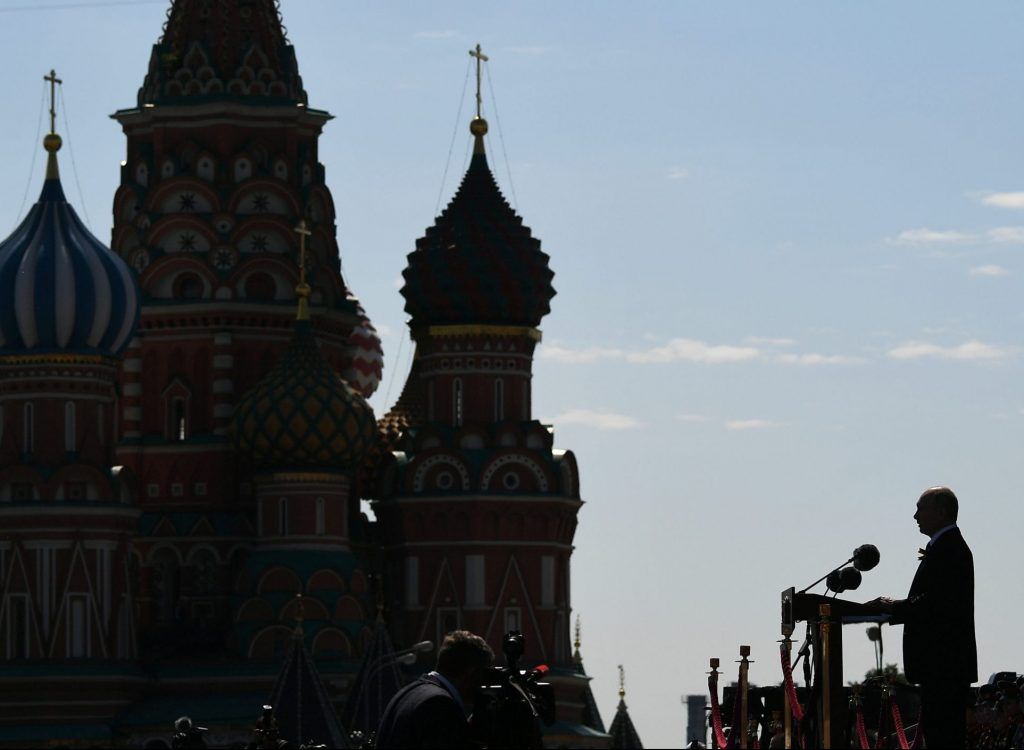Moscow’s threats melt against Baku’s resolve in shifting geopolitical landscape

In recent weeks, Russian media outlets, state-sanctioned and unrelentingly belligerent, have amplified threats against Azerbaijan, signalling yet again Moscow’s obsession with coercion as a tool of influence. These threats, which intensified after the downing of an Azerbaijani Air flight, have reached a crescendo in the wake of Azerbaijan and Armenia’s Washington declaration, a diplomatic gesture that Moscow clearly resents. It is tempting to dismiss these signals as empty posturing. Yet, the Kremlin’s reliance on intimidation exposes a deeper truth: Russia has little to offer the world beyond the spectacle of force.
The historical context is instructive. The conflict between Azerbaijan and Armenia did not begin in the post-Soviet era; it predates the very independence of these states. And Russia, far from being an impartial partner, has been a consistent provocateur. Kremlin strategists have long understood that their country lacks meaningful economic or technological innovation to project power globally. Thus, they have cultivated influence through war, coercion, and the manipulation of neighbourly disputes. This is not a strategy; it is desperation disguised as ambition.
Yet the world has changed. Neither Azerbaijan nor even its erstwhile “ally” Armenia sees Russia as indispensable. To ally with Moscow today is, in the long run, to accept stagnation and impoverishment. The lesson is clear: the farther one can distance oneself from Russian control, the better. History has repeatedly shown that Russia’s presence is seldom a boon.
Consider Azerbaijan itself. When the Soviet Union invaded the country back in the 1920s, Azerbaijan’s population stood at roughly 4.5 million. By the 1990s, that number had barely exceeded 7 million, despite the demographic explosion in neighbouring regions: in southern Azerbaijan under Iranian rule, the population tripled to 20–25 million, while Turkiye’s population surged from 10 million to over 60 million in the same span. Russia’s stewardship was nothing short of catastrophic. Beyond famine, purges, and the terror campaigns of the 1930s, Moscow funnelled Azerbaijanis into wars that served only its own imperial ambitions.
Resource exploitation tells the same story. When the Soviets controlled Azerbaijan, the country produced 60–70 per cent of the world’s oil. Yet by the time Russia withdrew, Azerbaijan’s control over its own resources was minimal. The country could not export crude until the late 1990s, and today, its contribution to the global oil market barely reaches one per cent. Had Azerbaijan avoided Russian domination, one can reasonably speculate that its population would now be 30–40 million, and its standard of living could rival that of the Gulf states or Scandinavia. Instead, Russia has left a legacy of constrained development, a bitter reminder that imperialism is rarely philanthropic.
Today, Kremlin propagandists imagine that threats alone will cow Azerbaijan into compliance. But the Azerbaijani people, scarred by history, understand the reality: there is no life under Russian domination. The choice is stark and familiar—either accept Moscow’s authority and perish slowly, or resist and risk death on the battlefield.
Meanwhile, Russia’s recent misadventures, from the botched three-day invasion of Ukraine to the ongoing quagmire, reveal the hollow core of Kremlin power. And yet, the same Kremlin voices, brashly and without reflection, continue to threaten Azerbaijan, Armenia, Kazakhstan and more, as though the passage of time or the lessons of history could be ignored. Observers can easily see the motivations behind these threats; the Russians themselves seem incapable of the same insight.
It must be acknowledged, however, that Soviet exploitation did occasionally yield geopolitical clout. By the mid-20th century, the USSR had become a superpower, partly through the indirect assistance of the United States and Britain, which supplied technology and resources that the Soviets could never produce on their own. Today, the mouthpieces of the Kremlin misread this historical fact, imagining that the brute force that worked in 1939 Finland or during the Soviet ascendancy can somehow be replicated today. But the world is no longer structured to enable Russian delusions of grandeur. Finland then was a strategic jewel; today, the former Soviet republics are independent actors, often supported by NATO and the United States, capable of restraining Russian overreach.
Russia’s narrative of invincibility has collapsed. There is no longer a race to the moon, no technological or economic miracles, and no allies waiting with open arms. Moscow now looks to Iran and North Korea for aid, a sobering testament to its diminished stature. The myth of Russian might—carefully cultivated through decades of propaganda—is dead. And yet, Kremlin voices, clinging to outdated scripts of dominance, continue to issue threats, exposing the emptiness of their ambitions.
The lesson for Azerbaijan, Armenia, and the broader region is unequivocal: Russia’s power is overstated, its intentions predictable, and its methods destructive. Those who wish to live freely cannot do so under the shadow of Moscow. History is not on the Kremlin’s side, and the sooner regional actors recognise that, the sooner they can secure their own sovereignty and prosperity.
The Russian empire, once feared, is now a cautionary tale. Its attempts to intimidate Azerbaijan and its neighbours are as futile as they are revealing. The world watches as a once-feared power clings desperately to old illusions, while the countries it seeks to dominate move forward with the clarity that survival demands. The era of Russian invincibility is over. It is time the Kremlin recognised it—and time for the region to act accordingly.
Here we are to serve you with news right now. It does not cost much, but worth your attention.
Choose to support open, independent, quality journalism and subscribe on a monthly basis.
By subscribing to our online newspaper, you can have full digital access to all news, analysis, and much more.
You can also follow AzerNEWS on Twitter @AzerNewsAz or Facebook @AzerNewsNewspaper
Thank you!

